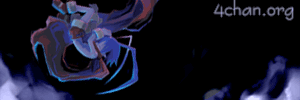| >> |
!ZHZKskBiOw 02/04/10(Thu)16:06 No.7923400>>7923176
The Rumbling Brothers tell stories about themselves a lot, that tend to change with each telling. The Fighter brother has told a few grimdark stories in-character about wars against the Drow, while the Bard brother will frequently make up bits of dwarven history and culture. Beards, he says, are incredibly important, because they show one's family and history among a race that normally looks very much alike. A black bead on the marriage-braid near the left sideburn, for instance, indicates a widower. The style of the beard, forking, etc. indicates clan and family, as I said earlier. Dwarves joining the military are all ritually shaved, their beards styled in a specific fashion, with specific lengths allowed depending on rank. A decorated and heroic general's beard might almost appear to be armored with beads and signs of rank. Only priests are allowed to be barbers, in general, although parents and elders may tend the beards of their children. Part of the reason Dwarven culture is so traditional and honest is because one can literally see, essentially, one's birth, resume, and family in one's face. Having one's beard and head fully shaven is the mark of a criminal, one that has been cut off from their family. A criminal bad enough to be exiled has his cheeks and jaw scarred so that he can never grow a beard again.
In the first age of the world, only male dwarves could grow beards, and it was due to the quest of a single, exceptionally brave and doughty Dwarf-woman that Moradin gave beards to female Dwarves. Although their beards would always be shorter and lighter, their heads would be less prone to baldness than their husbands, and so they could show their family and honor in their shorter beards and their braids. |

